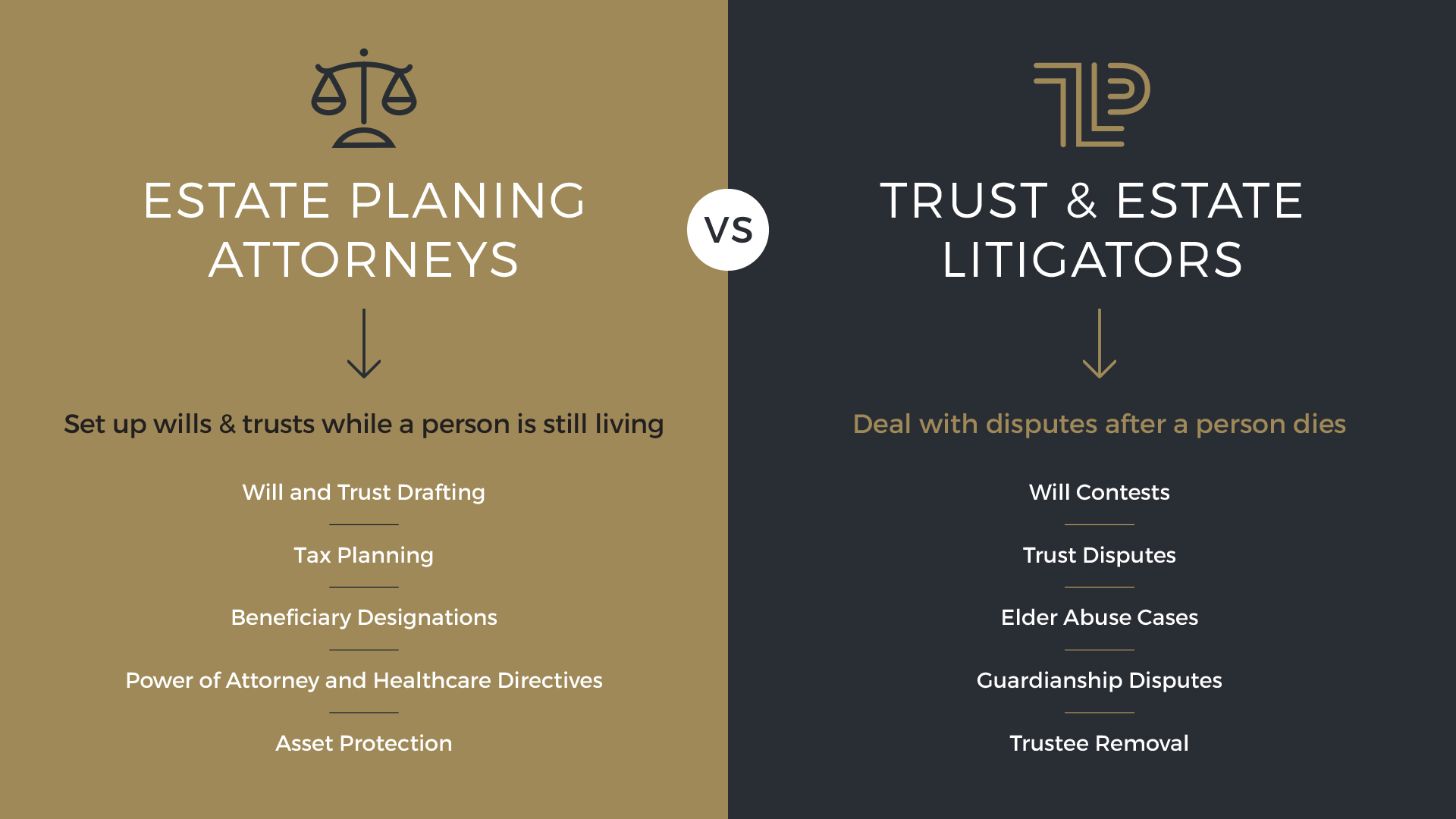
Understanding the Distinct Roles of Estate Planning Attorneys and Trust & Estate Litigation Attorneys
Introduction
Estate planning and trust and estate litigation are two essential aspects of the legal field that deal with the distribution and management of a person's assets after their passing. While both areas involve matters related to estates, they require vastly different skill sets and roles. Estate planning attorneys focus on creating comprehensive plans to ensure a smooth transfer of assets, while trust and estate litigation attorneys handle disputes and legal conflicts that arise within the context of estate matters. This article delves into the distinctions between these two specialized legal roles, highlighting the unique skills they bring to the table.
Estate Planning Attorneys
Estate planning attorneys are experts in crafting strategic plans to manage an individual's assets during their lifetime and distribute them according to their wishes after their death. Their primary goal is to help clients achieve their financial and personal objectives while minimizing tax implications and ensuring a seamless transfer of wealth. Estate planning attorneys offer a range of services, including:
Will and Trust Drafting: Estate planning attorneys help clients create legally binding documents such as wills and trusts to specify how their assets should be distributed among heirs and beneficiaries.
Tax Planning: They work to minimize estate taxes by utilizing various legal tools and strategies.
Beneficiary Designations: Estate planning attorneys assist clients in designating beneficiaries for retirement accounts, life insurance policies, and other assets.
Power of Attorney and Healthcare Directives: They help clients appoint agents to make financial and medical decisions on their behalf in case of incapacitation.
Asset Protection: Estate planning attorneys devise strategies to shield assets from creditors and potential lawsuits.
Trust and Estate Litigation Attorneys
Trust and estate litigation attorneys specialize in handling disputes and legal conflicts that arise from estate matters, including will contests, disputes over trust administration, claims of undue influence or incapacity, and disagreements among beneficiaries. Their role often requires a deep understanding of probate law and an ability to navigate complex legal intricacies. Services provided by trust and estate litigation attorneys include:
Will Contests: Litigators represent clients who challenge the validity of a will based on grounds such as lack of testamentary capacity, undue influence, or fraud.
Trust Disputes: Attorneys handle disputes involving trust administration, interpretation of trust terms, and breaches of fiduciary duty by trustees.
Elder Abuse Cases: Litigators may represent clients in cases involving financial exploitation or abuse of elderly individuals.
Guardianship Disputes: Trust and estate litigation attorneys can assist in disputes over guardianship and conservatorship appointments.
Trustee Removal: Attorneys assist in having incompetent or biasesd trustees removed by the court.
Key Differences
The primary distinctions between estate planning attorneys and trust and estate litigation attorneys lie in their areas of focus, skills, and responsibilities:
Nature of Work: Estate planning attorneys engage in proactive, pre-emptive work, while trust and estate litigation attorneys are reactive, dealing with conflicts after they arise.
Skill Set: Estate planning attorneys require a deep understanding of tax law, financial planning, and asset distribution strategies. Trust and estate litigation attorneys must possess strong advocacy, negotiation, and trial skills.
Focus: Estate planning attorneys concentrate on creating plans and documents, whereas trust and estate litigation attorneys focus on resolving disputes and legal battles.
Legal Knowledge: Trust and estate litigation attorneys need a thorough grasp of probate law and courtroom procedures, while estate planning attorneys may not have extensive litigation experience.
Conclusion
Estate planning attorneys and trust and estate litigation attorneys play crucial roles in the realm of estate law, each with a distinct set of skills and responsibilities. While estate planning attorneys are adept at creating comprehensive plans for asset distribution, trust and estate litigation attorneys excel in navigating complex disputes and conflicts that arise within the estate context. The collaboration between these two legal professionals ensures a comprehensive approach to managing estates and safeguarding the interests of clients and beneficiaries alike.


